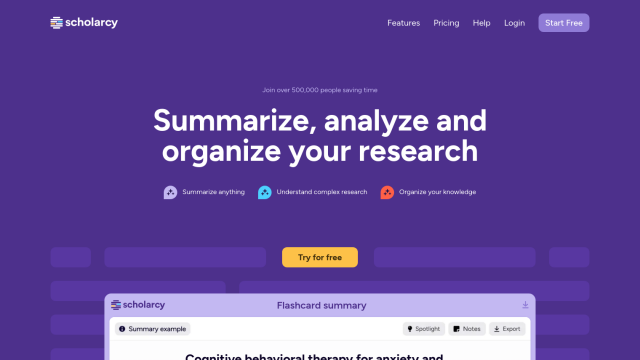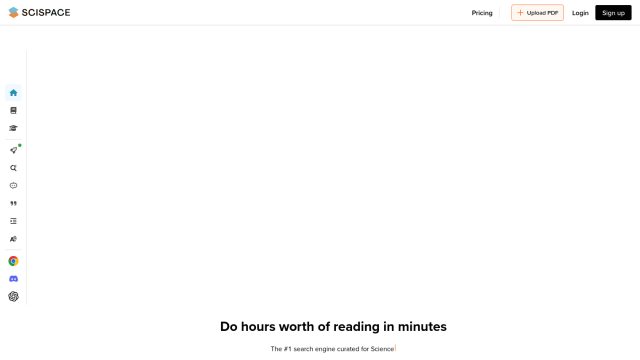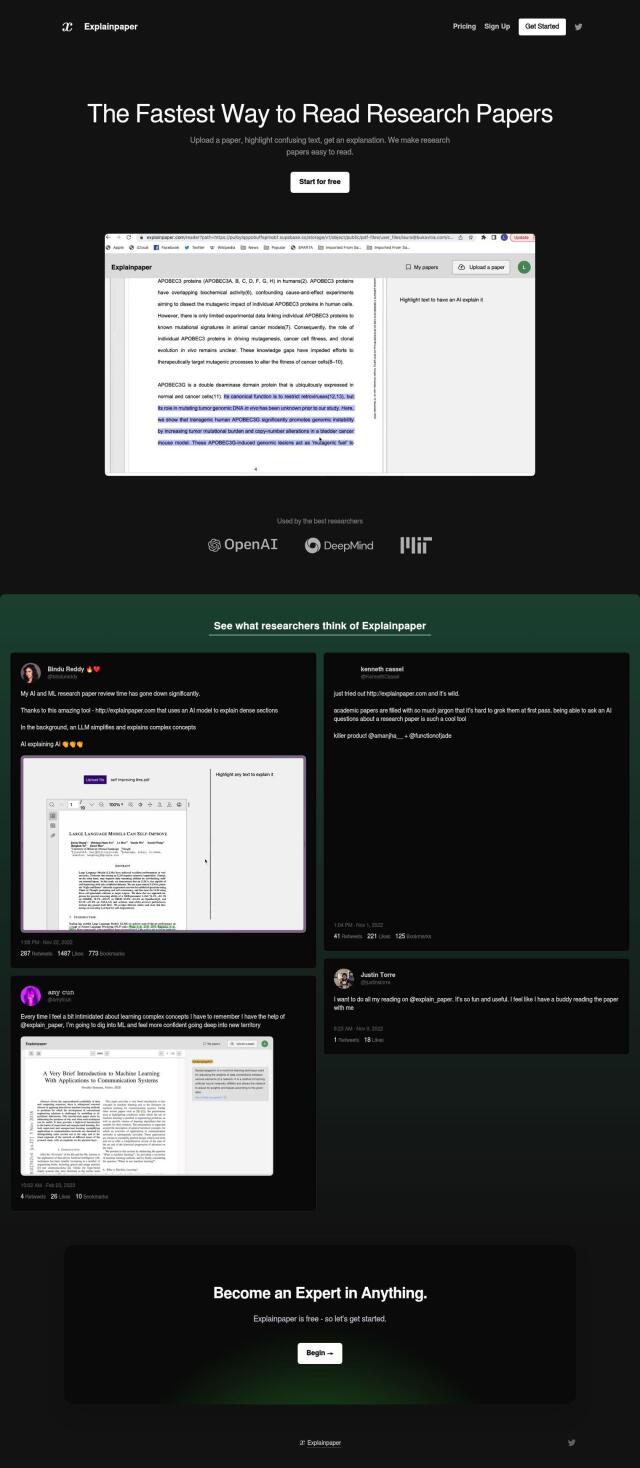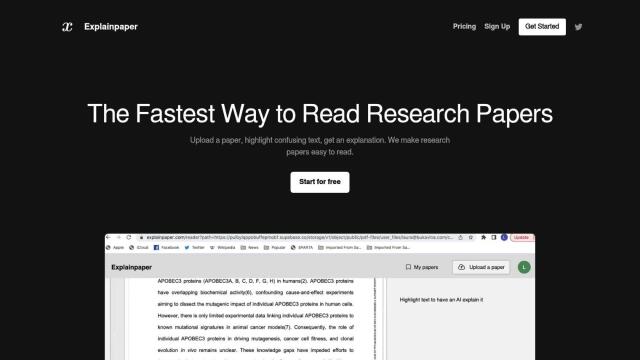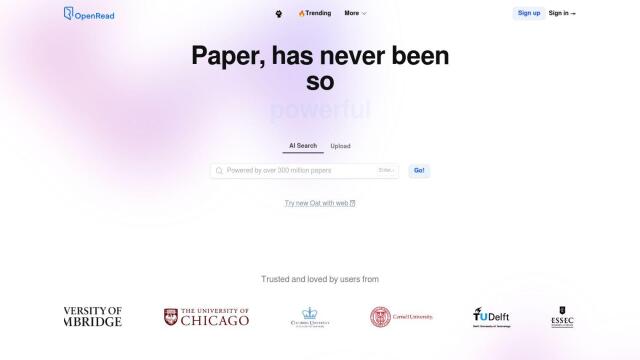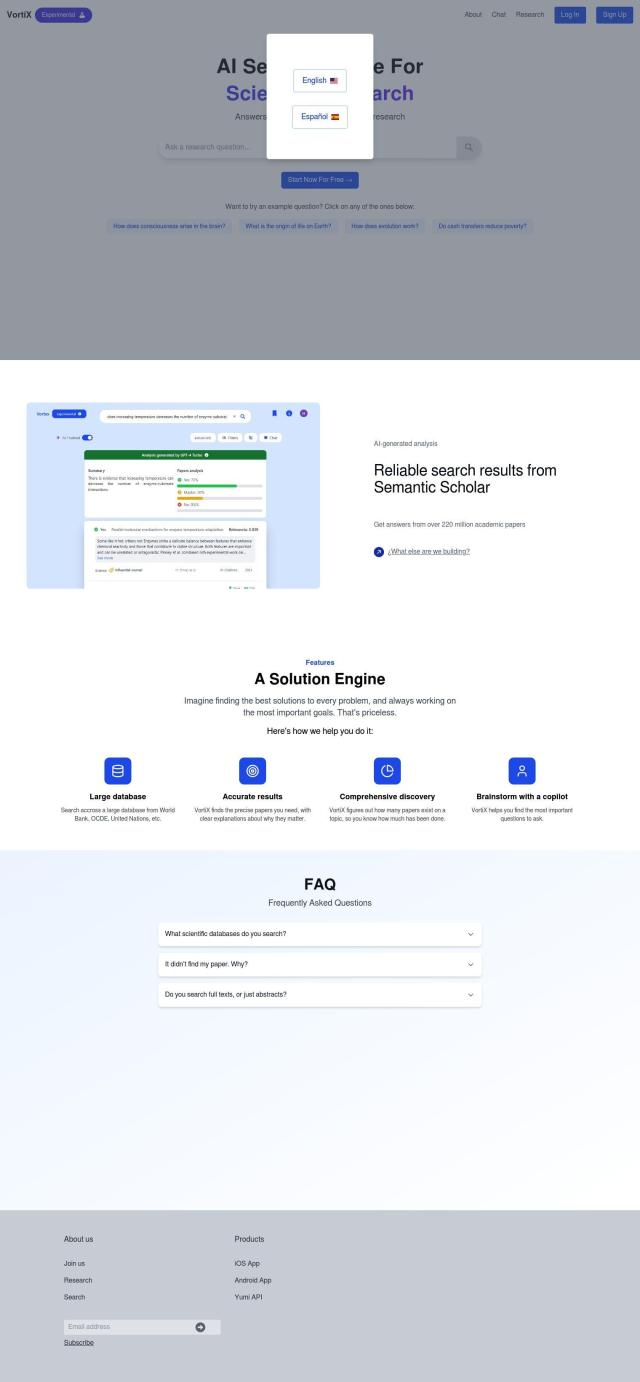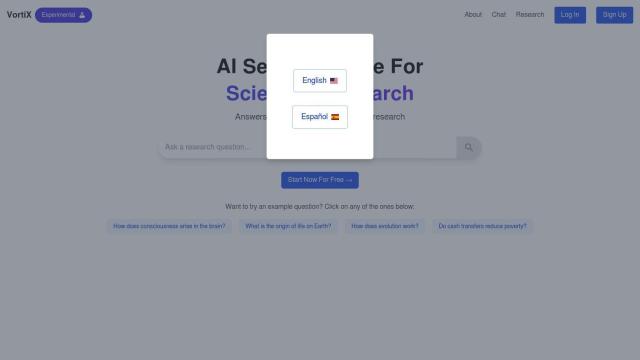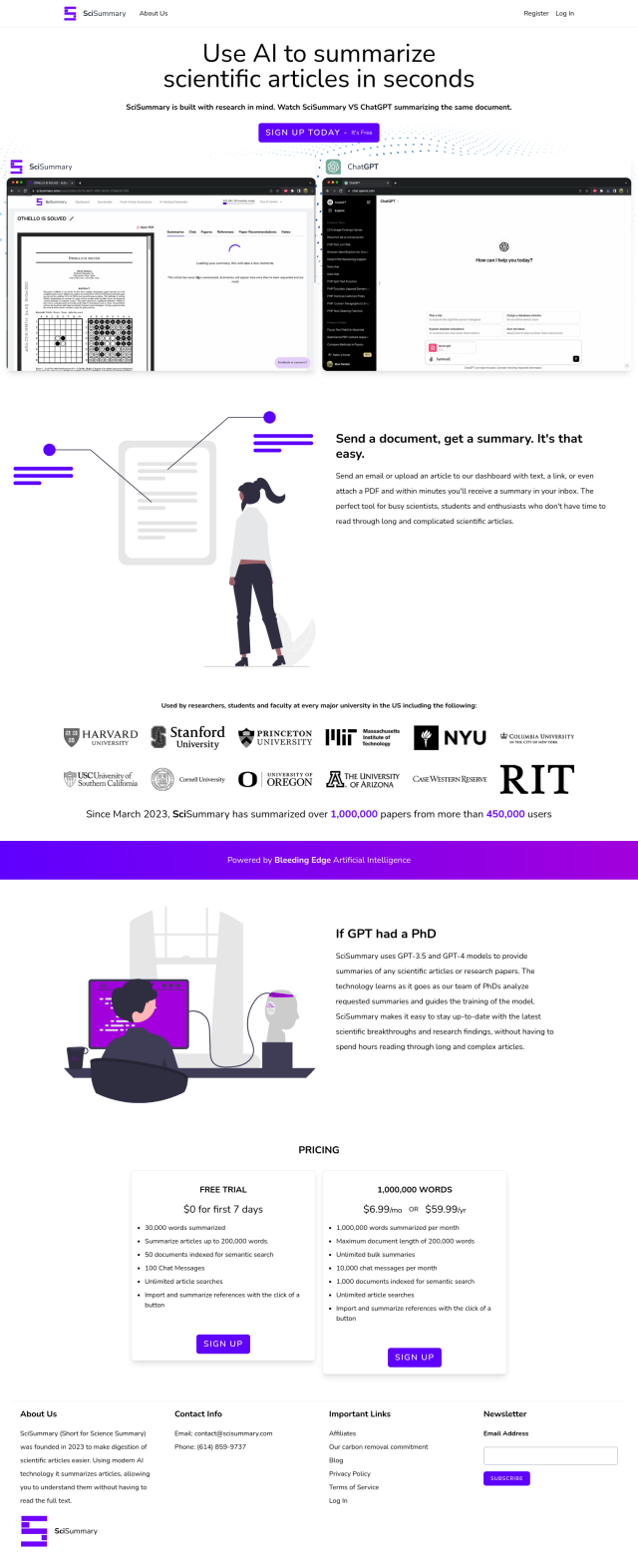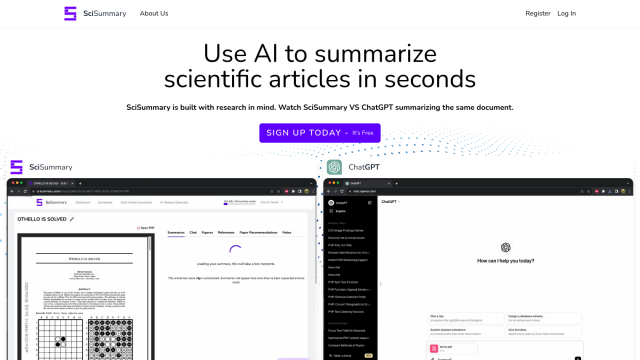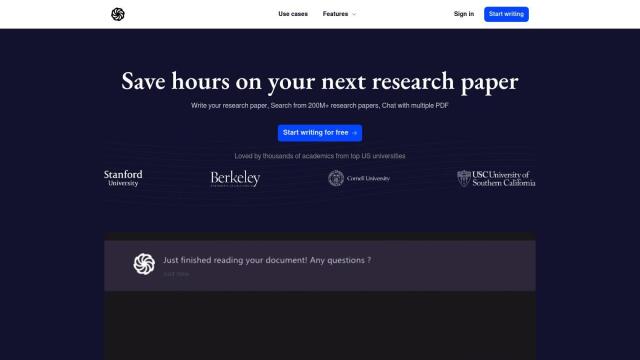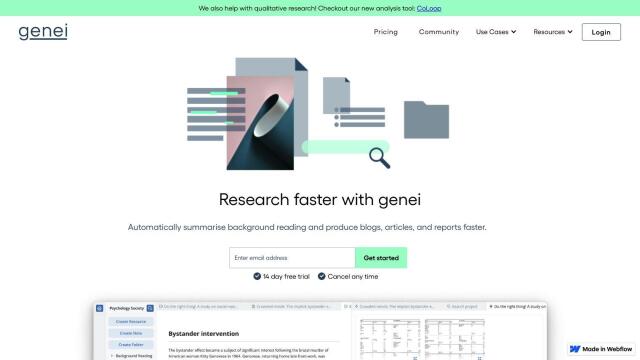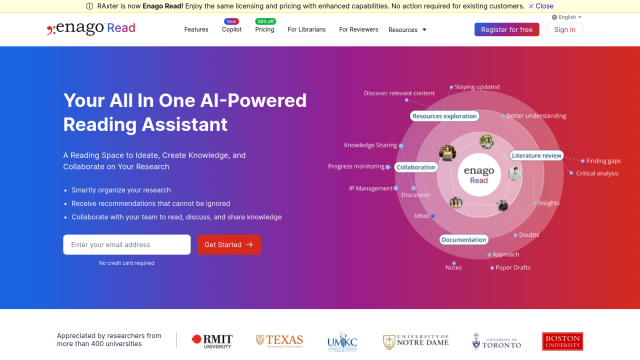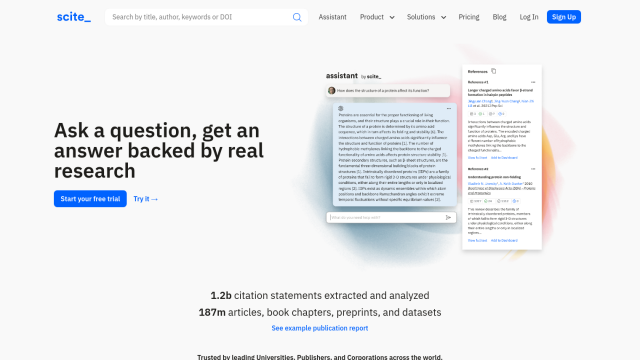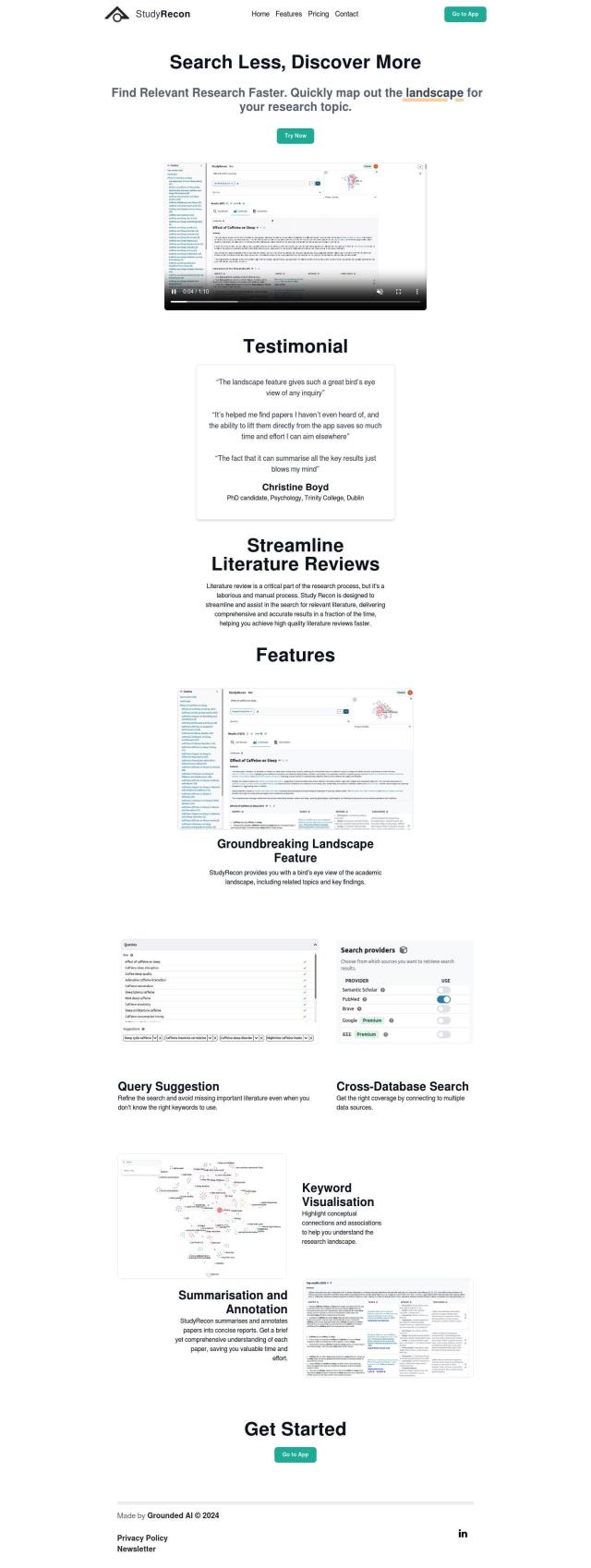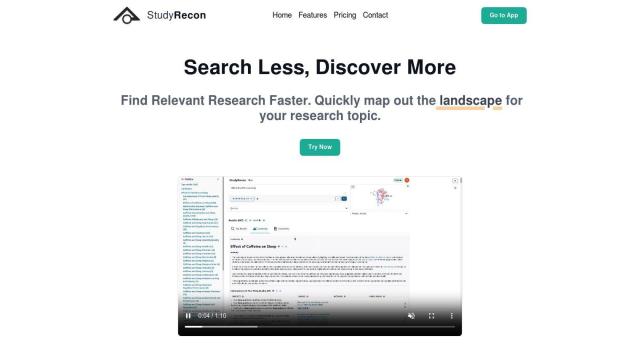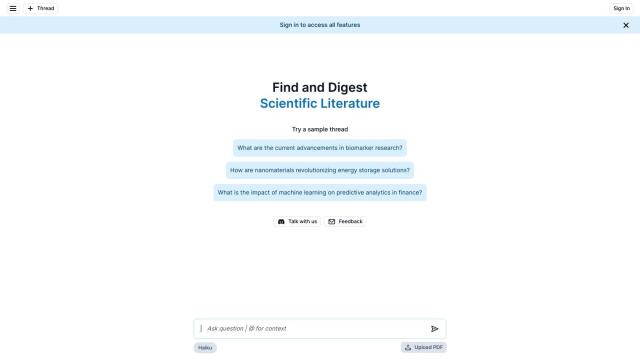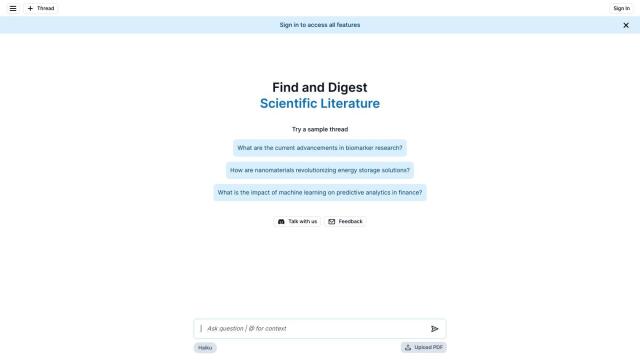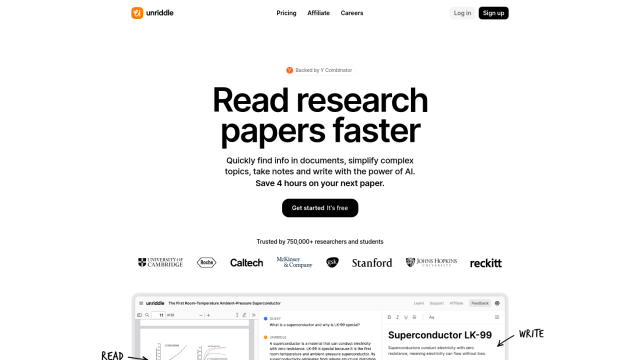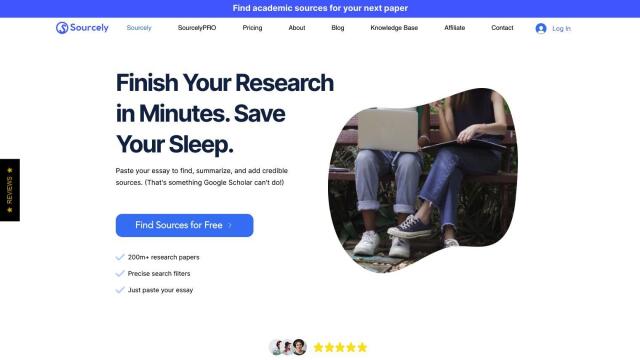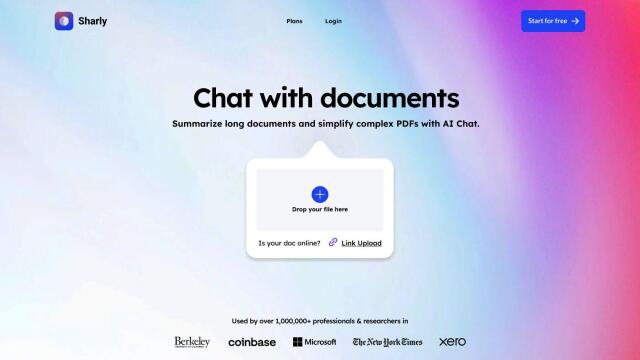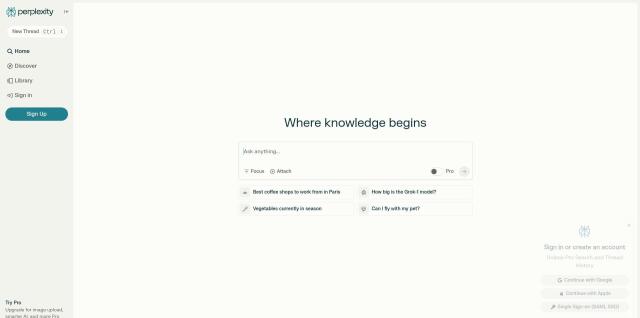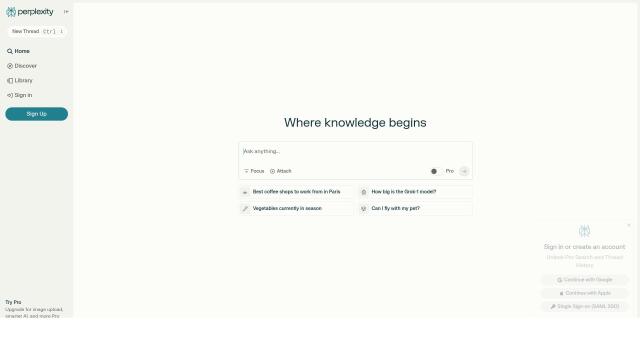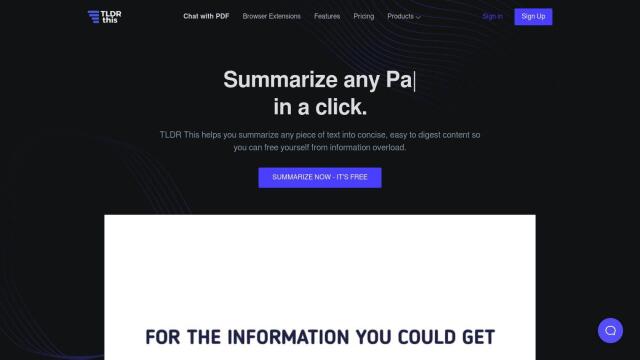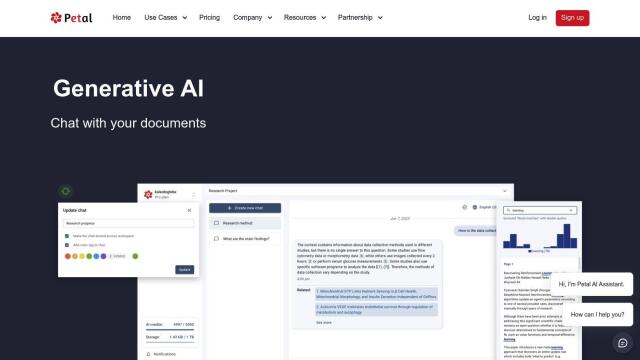Question: Can you suggest a search engine that summarizes academic papers and provides clear explanations of their findings?

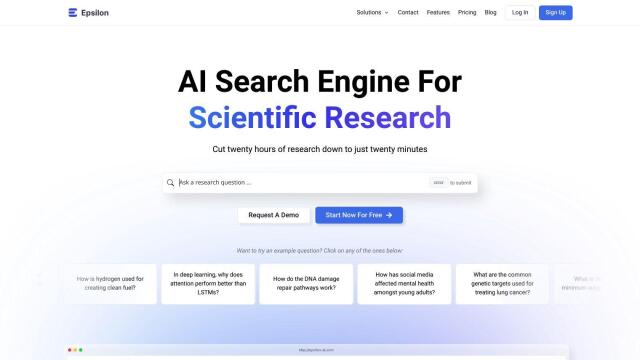
Epsilon
Epsilon is an AI-boosted search engine that's designed to speed up scientific discovery. It's got tools like Investigate for answers summarized with inline citations, Search to categorize publications, Validate to pull out key information, and Synthesize to generate longer summaries. The service has more than 30,000 researchers using it around the world, and it's available in several pricing tiers, so it should fit your academic needs.

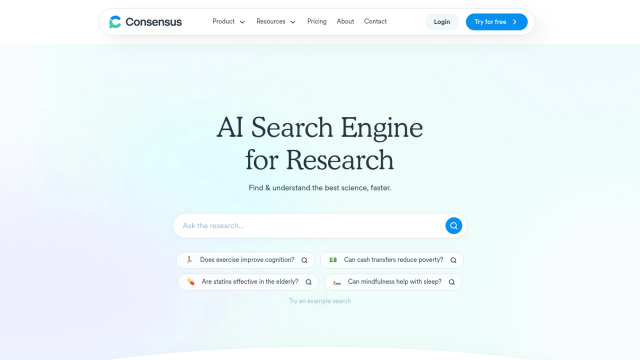
Consensus
Another option is Consensus, which lets you find and understand science and research papers more quickly. It covers a broad range of research, has AI analysis and proprietary search filters for things like methodology and sample size. Consensus is geared for students, researchers and clinicians who want to cut down on literature reviews and get a better idea of whether research is reliable.
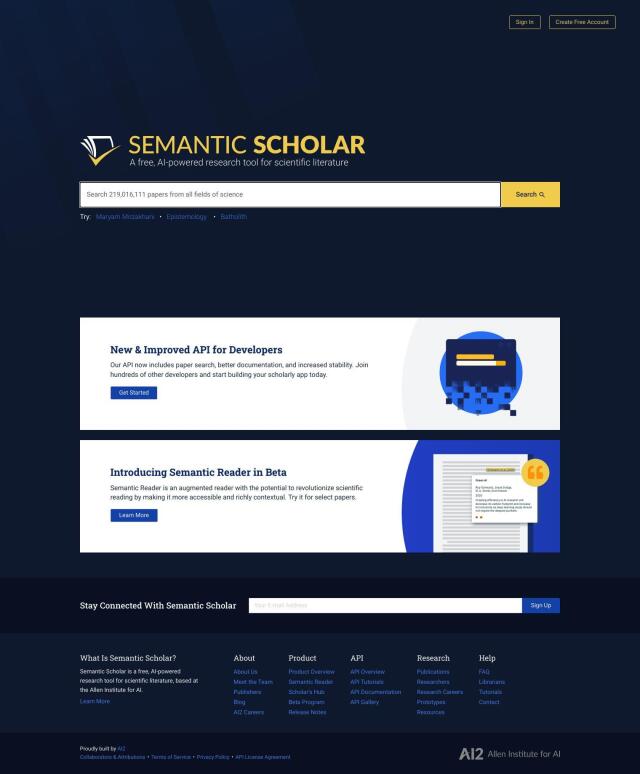
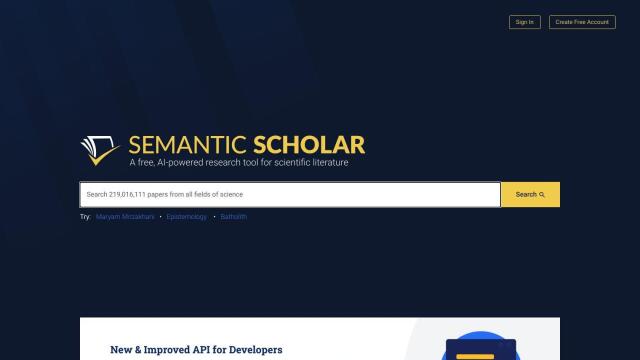
Semantic Scholar
If you want a free service, Semantic Scholar has access to more than 219 million academic papers, with brief summaries (TLDRs) that let you quickly evaluate papers. It also has tools to cite papers, organize research and generate AI-powered feeds. There aren't any subscription fees, so Semantic Scholar is good for researchers and developers, and the service is adding new features all the time to try to make it more useful.
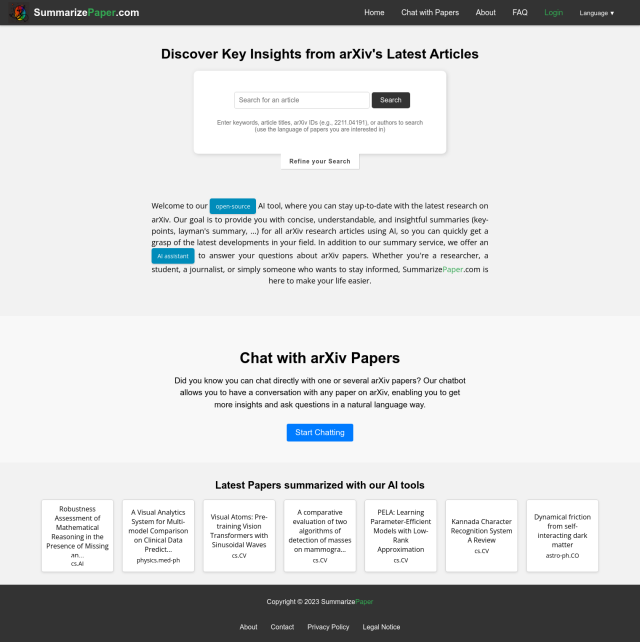
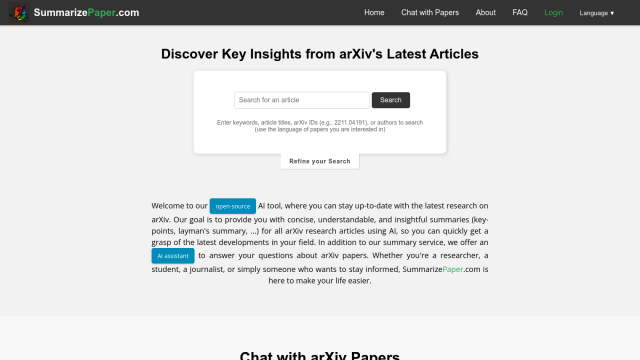
SummarizePaper
Last, SummarizePaper uses machine learning technology to summarize scientific papers from arXiv, helping you get a better handle on the research. The service responds immediately to natural language questions about papers and offers a chat interface, so it's good for researchers and students. It's free, so anyone can use it to get a better handle on the research.



